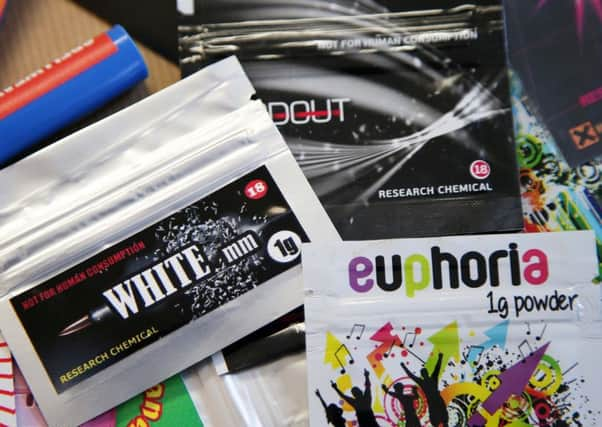Queen's University breakthrough in identifying legal highs


Authorities have struggled to keep pace with the different types of novel psychoactive substances (NPS) that have emerged in recent years.
By the time they take action against one legal high, often another version, with a slightly different chemical composition, will been in circulation.
Advertisement
Hide AdAdvertisement
Hide AdChemists from Queen’s University in Belfast have created a new fast track approach to identifying NPS.
Legal highs got their name because when they first emerged in the UK there was no legislation in place to prevent their legitimate sale.
Subsequent prohibitions against certain drugs have followed and next month a total ban will come into force under the Government’s Psychoactive Substances Act.
The ban covers “any substance intended for human consumption that is capable of producing a psychoactive effect”, with certain exceptions such as caffeine and alcohol.
Advertisement
Hide AdAdvertisement
Hide AdThose caught producing or supplying such drugs will face a maximum prison sentence of seven years.
The new technology produced by Queen’s will enable statutory agencies to identify the actual substances contained within the legal highs more quickly, so more prompt public health warnings can be issued.
It will also allow agencies to build a “live” picture of which drugs are currently in circulation, with the aim of helping to speed up related criminal prosecutions.
The research findings have been published in the Royal Society of Chemistry’s journal, Analyst.
Advertisement
Hide AdAdvertisement
Hide AdThe project was conducted by researchers in Queen’s School of Chemistry and Chemical Engineering in conjunction with Forensic Science Northern Ireland.
It was awarded £71,000 funding by Stormont’s Department of Justice through its Asset Recovery Community Scheme which uses assets seized from criminals to support a range of initiatives in Northern Ireland.
Queen’s professor Steven Bell said: “The production of these drugs is constantly evolving and unfortunately there have been many instances of highly dangerous variants appearing, causing multiple fatalities before the threat they posed was recognised.
“In 2014 alone 101 new psychoactive substances were identified.
Advertisement
Hide AdAdvertisement
Hide Ad“As a result of the new approach devised at Queen’s, we predict that we will be able to identify many more substances and at a much more rapid pace as our work in this area progresses.
“This will not only aid in the creation of new legislation but will also enable more meaningful information to be available to the community, police and public health agencies, with the aim of saving lives and preventing serious injury.”